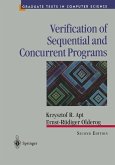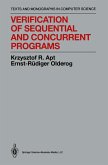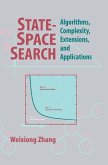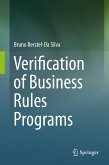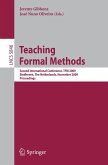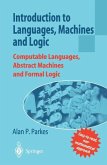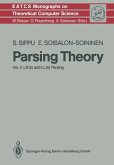This widely anticipated third edition of Verification of Sequential and Concurrent Programs provides a systematic exploration of one of the most common approaches to program verification, known as the "assertional" approach. Following the successful formula of previous editions, this approach is applied to deterministic and nondeterministic sequential programs of varying complexity, together with both parallel and distributed concurrent programs. The expanded content of this thorough new edition also includes coverage of the verification of object-oriented programs. For each class of programs, the authors introduce an operational semantics and proof systems for the verification of partial and total correctness, justified formally in corresponding soundness theorems. Case studies supplied throughout the book demonstrate the use of the proof systems to formally verify solutions to classical problems, such as sorting, manipulation of lists, producer/consumer and mutual exclusion.
Topics and Features:
- Includes a thorough introductory section, familiarizing the reader with the basic concepts and notation used in the book, as well as the book's structure
- Explains Hoare's approach to program verification for while programs, providing a correctness proof of a program for partitioning an array (NEW)
- Concludes each chapter with exercises and bibliographic remarks for further reading
- Discusses recursive programs that extend deterministic programs by parameterless procedures and procedures with thecall-by-value parameter mechanism, and provides a correctness proof of the quicksort program (NEW)
- Explores nondeterministic and distributed programs, presenting a verification method of distributed programs based on a transformation into nondeterministic ones
- Presents object-oriented programs, with a focus on the main characteristics of objects (NEW)
- Investigates parallel programs with shared variables and with synchronization
- Studies the issue of fairness in the framework of nondeterministic programs, using an approach based on the method of explicit schedulers
- Includes a Foreword by Professor Amir Pnueli
This modern update of a classic, reader-friendly textbook is perfect for an introductory course on program verification for advanced undergraduate or graduate students, and may also be used as an introduction to operational semantics. Outlines for possible courses are suggested in the Preface to the book. This book is unique in addressing assertional verification of all essential classes of imperative programs: while programs, recursive programs, object-oriented programs, nondeterministic programs, parallel programs, and distributed programs.
Dieser Download kann aus rechtlichen Gründen nur mit Rechnungsadresse in A, B, BG, CY, CZ, D, DK, EW, E, FIN, F, GR, HR, H, IRL, I, LT, L, LR, M, NL, PL, P, R, S, SLO, SK ausgeliefert werden.



